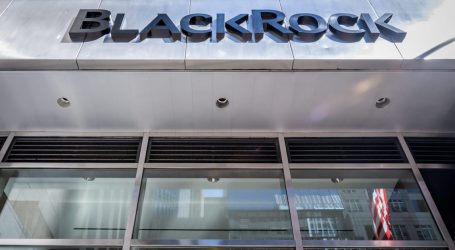Anti-Vaccine Zealots Pose a Threat to Canada’s Democracy, Too
Photoillustration by Caroline Orr/National Observer
Fight disinformation. Get a daily recap of the facts that matter. Sign up for the free Mother Jones newsletter.This story was originally published by Canada’s National Observer and is reproduced here as part of the Climate Desk collaboration.
While vaccines and mask policies are viewed favorably by most Canadians, the vocal minority who oppose them are a growing threat—not only to public health, but to public safety and even democracy itself.
In recent weeks, anti-vaccine protests have drawn angry, unruly crowds outside hospitals and other health care facilities across Canada, blocking patients and employees trying to access the buildings, and in at least one instance, forcing cancer patients to get out of cars and walk through the unmasked mob. Protesters have reportedly verbally and physically assaulted health care workers, while others have used social media to issue threats of violence against doctors and nurses.
Last month, anti-vaccine protesters showed up at the home of an Ontario education minister and, upon learning that he wasn’t there, decided to harass his neighbors instead. On the campaign trail, Prime Minister Justin Trudeau has been tracked by angry crowds of anti-vaxxers shouting profanities and making Nazi references. Less than two weeks after security concerns forced him to cancel a rally in Ontario, Trudeau was hit with gravel thrown by an anti-vaccine protester at one of his campaign events.
With election day near, Canada’s anti-vaccine movement is more active—and more angry—than ever, and some extremism experts are worried about what will happen when the protesters no longer have an election to direct their outrage towards.
“They’re going to be trouble for some time,” Kurt Phillips, board member of the Canadian Anti-Hate Network and founder of Anti-Racist Canada, told Canada’s National Observer. “The rage that exists in the movement—I don’t know where that goes [after the election]. It could explode.”
Nonetheless, possibly the first time ever in Canada, and certainly the first time in recent history, vaccination has taken the center stage as a major campaign issue in the federal election.
Trudeau invoked the pandemic when he announced the election in August, saying voters deserve to have a say in who leads the country during its recovery from COVID-19. While mask requirements, vaccine mandates, and other restrictions are already in place, Trudeau promised to pursue an aggressive strategy to combat COVID if the Liberal government remains in power, and criticized his opponent, Conservative leader Erin O’Toole, for opposing vaccine mandates. In August, Trudeau pledged a billion dollars to help provinces create their own vaccine passport systems—a move that has widespread public support.
Similar to that in the United States, the anti-vaccine movement in Canada is driven by a multitude of factors, including distrust of the government and other institutions, animosity towards experts and authorities, cultural grievances, rejection of mainstream science, and the creeping influence of extremism in mainstream discourse on the right. Much of the anger and opposition to vaccination is propelled by misinformation and conspiracy theories alleging that vaccines are unsafe, harmful, or part of some sort of plot aimed at establishing a biometric surveillance system or other form of government control.
The anti-vaccine movement has close ties to extremist groups, Christian nationalists, QAnon conspiracy theorists, run of the mill grifters and scam artists, and other right-wing causes like the Yellow Vest movement, which now airs its grievances under the banner of anti-vaccine activism.
“Every single prominent Yellow Vester that I’m aware of is now an anti-vaxxer,” Phillips said.
Like the Yellow Vest movement—which saw oil and gas pipeline protest being used as cover for right-wing extremist activity—the anti-vaccine movement has become entangled with far-right extremism as white nationalists and other extremists use the guise of vaccine skepticism to push increasingly extreme conspiracy theories targeting Jews, immigrants, health care workers, and others.
In modern history, the rise of the anti-vaccine movement and associated nativist, anti-immigrant attitudes has often coincided with waves of far-right populism.
European populist parties like Italy’s Five Star Movement have grown their coalition by raising baseless concerns about vaccine safety and campaigning against vaccine mandates, resulting in decreased childhood vaccination rates and resurgences of diseases like measles. From the start of the pandemic, far-right extremists in Italy have flooded social media with articles blaming migrants for the deadly pandemic, while in Austria and Germany, far-right politicians have used the pandemic to spread conspiracy theories about vaccines and call for crackdowns on immigration. Anti-Semitic vaccine conspiracy theories have also been linked to a rise in hate crimes targeting synagogues and Jewish schools in Switzerland.
The link between populism and anti-vaccine sentiment is apparent in Canada, too. Throughout 2020 and 2021, the People’s Party of Canada (PPC) has capitalized on the grievance-based energy of the anti-vaccine movement to mobilize supporters and draw in new voters. PPC leader Maxime Bernier is a founding member of the “End the Lockdown Caucus” and has made opposition to public health measures such as mask mandates, vaccine passports, and lockdowns—which he calls “tyrannical” and “Orwellian”—a centerpiece of his campaign.
Local PPC candidates have been riding the wave of anti-vaccine anger and, at times, contributing to it. Mark Friesen, a PPC candidate in Saskatoon-Grasswood who was involved in the Yellow Vest protests, has pivoted to organizing “freedom” rallies in opposition to vaccines and other public health restrictions, and has appeared alongside the Canadian Frontline Nurses, one of the main organizers of the protests.
Ron Vaillant, PPC candidate for Calgary Shepard, has repeatedly compared vaccination to Naziism, while fellow PPC candidate Marc Emery suggested in a tweet last week that Trudeau deserves to be executed like Italian fascist dictator Benito Mussolini. He ultimately deleted the tweet at the request of Bernier.
Another PPC candidate, Peter Taras, recently tweeted a picture of a dozen bodies hanging in Nuremberg, Germany, following the Nuremberg trials. Taras implied that the bodies belonged to “members of the media who lied and misled” people “right along with medical doctors and nurses who participated in medical experiments.” He later deleted the tweet and denied that he was suggesting anything violent or threatening in his tweet.
Earlier this month, Anti-Hate Canada identified several people associated with the PPC, along with known white nationalists, at the violent rally where gravel was thrown at Trudeau. Shane Marshall, the riding director for PPC candidate Chelsea Hillier—daughter of No More Lockdowns co-founder Randy Hillier—was reportedly in attendance, as was far-right YouTuber and self-described nationalist Tyler Russell, who leads a fledgling far-right nationalist movement called Canada First.
On social media, anti-vaccine groups are littered with messages encouraging people to vote PPC in the upcoming election, and white nationalist groups like the Canadian Nationalist Front have thrown their support behind Bernier and the PPC. In recent polls, the PPC has reached record-high levels of support, putting the party in a position to potentially have a significant impact on the election.
Even if the PPC doesn’t succeed at the ballot box, there are likely to be lasting consequences from the party’s 2021 campaign. The coalition of far-right groups that coalesced during the pandemic now has a political party to legitimize it and give it a voice, which has energized them and may help them form a larger, more organized movement in the future. Regardless of the election outcome, the pandemic will still be here and whoever is leading the country will have to contend with a mobilized, motivated minority of the population that views government and science as threats that need to be eliminated.
Furthermore, although Bernier has avoided explicitly calling for or condoning violence, his incendiary rhetoric—particularly his frequent use of the word “tyranny” to describe the Liberal government—echoes the rhetoric of far-right militias like the Three Percenters and serves as a “dog whistle” to extremists, said Phillips.
To those who truly buy into the far-right narrative, the election isn’t just about who will be the next prime minister. It’s also about fighting back against what they believe to be a malicious, tyrannical government trying to use vaccines and lockdowns to strip away their freedom. With stakes that high, Phillips fears that someone may interpret the PPC’s messaging as a call to do whatever it takes to stop the government from enforcing vaccine mandates, even if it takes violence.
“Most people will hear that [message] and won’t act on it, won’t do anything,” Phillips said. “But at some point, somebody will.”
Graphic by Caroline OrrThat’s exactly what some far-right extremists are hoping for. Messages posted on far-right discussion boards show anonymous users proposing violence as the only solution and talking about leveraging anti-vaccine conspiracy theories to encourage people to commit attacks against vaccine producers.
As recent events have made clear, the threat of violence associated with the anti-vaccine movement isn’t just hypothetical. It’s a problem spreading around the world.
Earlier this month, several UK police officers were injured after anti-vaccine protesters tried to storm the building of the health ministry in charge of the country’s vaccination efforts. This came just after the UK’s Daily Mail infiltrated a group of 200 anti-vaccine military veterans called Veterans 4 Freedom and found that members were discussing weaponry and plotting attacks on vaccination centers. A week later, police in Italy raided the homes of anti-vaccine activists after discovering that they had been using Telegram to plot violent attacks against members of government and the general public in opposition to vaccine passports. Earlier this year, when the mayor of a town in southwest Poland tried to mandate the COVID-19 vaccine, a mob of anti-vaxxers—some wearing military fatigues—descended on his house, issuing death threats and comparing him to a Nazi. In Belgium, a prominent virologist had to go into hiding in a safe house after receiving threats from a soldier armed with a rocket launcher, a machine gun, body armor, and a pistol.
In the U.S., anti-vaccine protests have led to stabbings and violent attacks against journalists and others. Over the summer, a breast cancer patient in California was sprayed with bear mace and physically assaulted after confronting protesters outside of a health care clinic. And last year, FBI agents shot and killed a Missouri man during a confrontation that took place when agents tried to arrest him in connection with a domestic terror plot. The man, who reportedly expressed racist and anti-government sentiments online, was allegedly planning to detonate a car bomb outside of a hospital, with the goal of causing mass casualties.
The anti-vaccine movement in Canada has direct ties to the far-right groups in the United States that are behind these violent protests, as well as other acts of violence and terror like the January 6 insurrection. There are also apparent links between the organizers and leaders of Canada’s anti-vaccine movement and Trump insiders like Steve Bannon and Gen. Michael Flynn, who spent months spreading the very same election conspiracy theories that incited the Capitol riot.
Some far-right figures have already started spreading disinformation in Canada about the election being stolen or rigged and there’s a real possibility that some of these people won’t accept the election outcome as legitimate, just as they don’t accept the science of vaccination as valid.
That’s the new reality we’re dealing with in this post-truth, choose-your-adventure world where sizable swaths of the population have abandoned science, expertise, and knowledge-producing institutions in favor of Google searches and snake oil salesmen. The next leader of Canada, whoever that may be, will not only have to lead the country’s pandemic recovery while navigating a resurgent, potentially violent movement fighting them every step of the way—they’ll also have to figure out how to do it while dealing with segments of society who have given up on the very values that hold society together.




